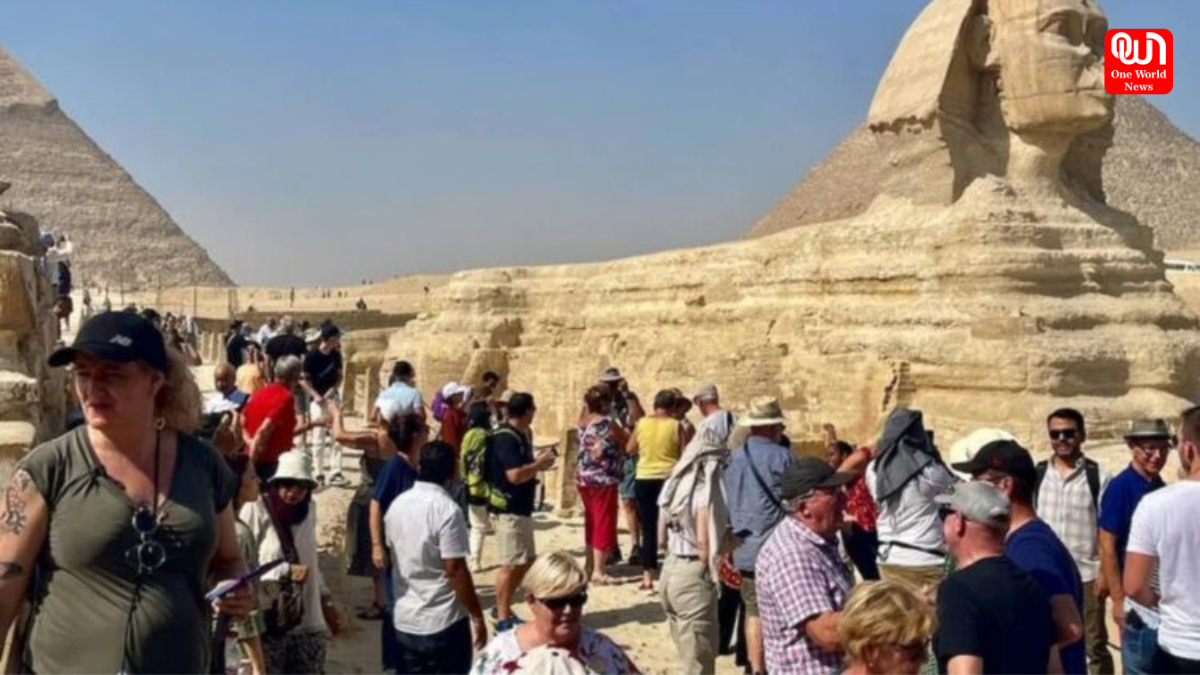Egypt’s Plan to Save the Giza Pyramids from Overcrowding and Bad Tourism Practices
Egypt introduces reforms to protect the Giza Pyramids from overcrowding, scams, and animal cruelty, aiming to preserve its heritage while improving tourism experiences.
Egypt’s Ambitious Plan to Protect the Giza Pyramids from Overcrowding, Scams, and Animal Cruelty While Enhancing the Tourist Experience for Future Generations
The Giza Pyramids have for centuries testified to the grandeur of ancient Egypt and attract millions of visitors from across the globe. However, the overwhelming influx of tourists into this site is now beginning to negatively affect both the tourists’ experience and the preservation of the ancient site itself. By 2024, Egypt had registered 17.5 million tourists; this figure is expected to double by 2030, according to the government. The flourishing industry, while supporting the economy of the country, raises the specter of overcrowding against preservation. To this effect, Egypt has set in motion an extensive program that aims to keep the pyramids safe for generations and enhance the experience of tourists.
Egypt has long been synonymous with culture; dynamic fusion of ancient marvels and modernism. The beauty of the place—from the Nile to the markets, from the Pyramids of Giza to the temples of Luxor—gives an experience not many places on earth can offer. Sadly, at the Giza Necropolis, the heavy tourist traffic creates chaos, with an environment that is sometimes uncomfortable.
An organized restructuring plan is a way in which the government wishes to solve this, most of which is aimed against crowding and consequent damages to mass tourism. It entails a new gate to the pyramids along the Cairo-Fayum road to ease access and reduce congestion. There will be a concerted effort to rehabilitate the tombs in the vicinity and promote green transport, possibly electric buses, to lessen impact and enhance visitor experience.
Millions of dollars are being injected into this metamorphosis by Orascom Pyramids, which is among the best developers, ensuring that the Giza plateau is not only a great tourist attraction, but also an eco-friendly and pleasurable destination for generations to come. Again, this modernization is direly needed because the pyramids are the last existing wonder of the ancient world, and their conservancy is culturally pertinent for Egypt and humanity as a whole.
As one of the most important challenges faced by tourists in Egypt, scammers and aggressive street vendors seem to pop everywhere during the tourist season. These issues have been showcased on social media, with visitors on TikTok and Reddit airing their frustrations about being harassed by nefarious resellers and tour guides, which only further detracts from the beauty and glory of the pyramids. The government is, therefore, aiming to put an end to these negative commercial practices with stricter measures for regulating and managing visitors.
To reduce the overcrowding and commercialization, a third serious issue is the treatment of animals used in tourism activities, such as camels, horses, and donkeys. For years, animal rights groups such as PETA have decried these animals’ inhumane conditions, often starving and overworked. That prompted the Egyptian government to deal with these accusations through an animal welfare program in all tourist areas, including Giza, which would be guaranteed to care for animals humanely. At the same time, introducing electric buses around the Giza Necropolis offers tourists a comfortable, eco-friendly option to animal rides.
Changes in Giza are much more than the surface level; they’re a major, important intervention program created to protect one of the world’s greatest cultural sites from the threats of unmitigated tourism. While putting its best foot forward to increase tourism revenue, Egypt holds sustainability, visitor satisfaction, and animal welfare at the center of its new approach to its most iconic tourist attraction.
Read more: Innovative Bio-Solutions: Microbes and Alternative Feeds Combat Climate Change
In this social media day and age, where bad experiences are virally transmitted in a twinkle, Egypt can no longer afford to overlook the challenges brought by crowding and malpractices. Thanks to the government’s proactive measures toward modernizing visitor experiences, protecting heritage, and addressing animal ethics, Egypt is now etching a new frontier of responsible tourism at one of the most eminent sites worldwide.
We’re now on WhatsApp. Click to join.
Like this post?
Register at One World News to never miss out on videos, celeb interviews, and best reads.








